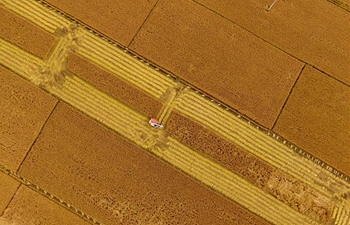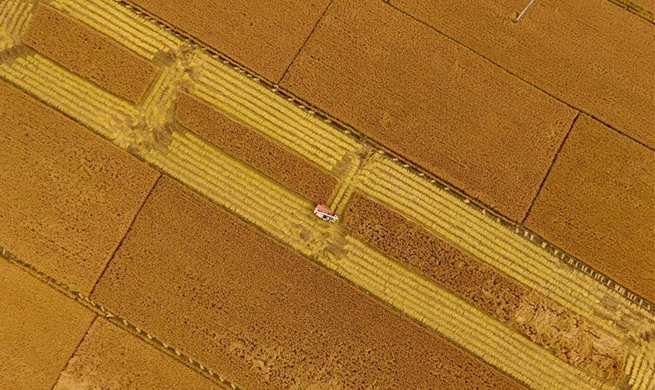NANJING, Oct. 16 (Xinhua) -- An international research team has completed genome sequencing of the pangolin, uncovering the possibility of another function of the animal's scales -- improving its skin immunity.
"The pangolin genome had not been sequenced until now, in part due to the difficulty in obtaining DNA samples," said Siew Woh Choo, a researcher with Xi'an Jiaotong-Liverpool University (XJTLU) who led the team.
Due to a selective diet and poor immunity, it is difficult to keep pangolin in captivity.
Scientists obtained DNA samples from two critically endangered species of pangolin -- the Chinese pangolin and Malayan pangolin -- and mapped out genome sequencing.
The data were analyzed by an international team of scientists, who were needed due to the large size of the pangolin genome, which is nearly equal in size to the human genome.
Choo said that some genes may have lost their functions due to mutations during evolution. The research team found that this was the case with certain genes related to pangolin immunity, such as the IFNE gene.
"But this gene is functional in humans," Choo said, adding that it works as the first line of defense against pathogens attempting to enter human bodies.
Researchers believe that the pangolin's scales not only can protect it from predators but also from injuries as well as subsequent microbial infections. The impact of evolution on scales, to some extent, may have caused skin immunity loss, due to a loss in function of the IFNE gene.
According to an article released on the XJTLU website, the investigation of pangolin genetics is continuing, while Choo's team is exploring the possibility of making the pangolin a comparative model for understanding human immunity and diseases.

















